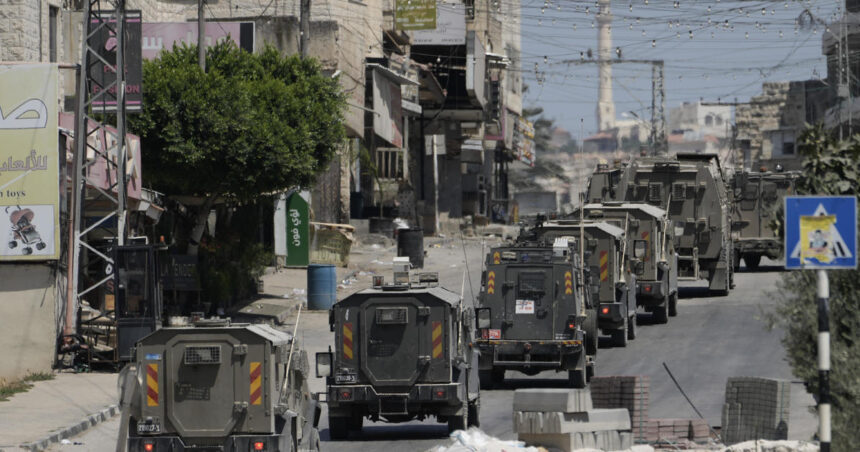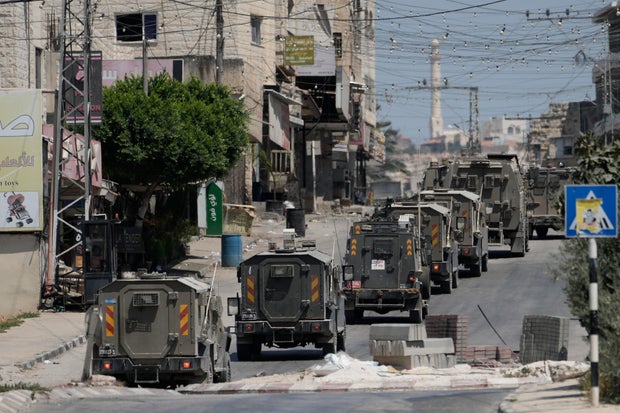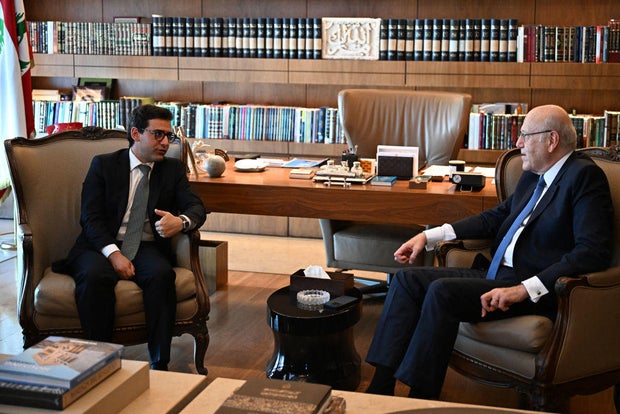Along with a surge in fighter jets and warships, President Biden sent three of his top Middle East advisers, including CIA Director Bill Burns, to the region this week to try to delay Iranian and Hezbollah military retaliation against Israel, and to use the borrowed time to make an offramp from a collision course that ultimately threatens a regional war that could draw US forces.
The US assessment is that Iran will not interfere with ceasefire negotiations in Doha aimed at ending the Hamas-Israel war. The technical talks could last until the end of the week, but it is unclear how long Iran and its proxies could hold off. National Security Council spokesman John Kirby told reporters on Thursday that an Iranian attack could come with “little or no warning, and it certainly could come in the coming days.”
Both Iran and the Lebanon-based proxy force Hezbollah have vowed to retaliate in response killing Hamas leader Ismail Haniyeh in Tehran two weeks ago and July killed top Hizbullah commander Fuad Shukr in Beirut, but did not say when or how. Israel said that killed Shukr in an airstrike. US officials confirmed to CBS News that Israel was responsible for Haniyeh’s killing, although Israel has not publicly acknowledged it.
But several sources in the region told CBS News that the Iranian government continues to debate internally whether to use military force as it did. on April 13while launching hundreds of drones and missiles into Israel, or intending to conduct covert intelligence operations. Sources also told CBS that Lebanon-based Hezbollah leader Hassan Nasrallah does not want to act without Iran’s consent, but he also does not seek a bigger conflict with Israel. The US has determined that Hezbollah can launch attacks without warning.
US diplomacy, which includes indirect outreach to Tehran through other governments and Hezbollah through politicians in Beirut, is aimed at limiting the risk of regional escalation. Permanent Mission of Iran to the United Nations told CBS News earlier this month that Hezbollah may not limit itself to military targets in Israel this time, suggesting the group may aim “wider and deeper” in Israeli territory in civilian targets. By 2021, the CIA believes Hezbollah has an arsenal of up to 150,000 missiles and rockets, including some with long ranges that collectively have the potential to overwhelm Israel’s anti-missile defense systems and strike deep inside Israeli territory.
Majdi Mohammed / AP
At a press conference in Beirut on Wednesday, US special envoy Amos Hochstein indicated that the centerpiece of Biden’s strategy was to use this narrow window of time to get Israel and Hamas to agree to a hostage release and a cease-fire deal in the Gaza Strip, which could then help prevent war in Lebanon after 10 months of cross-border attacks between Israel and Hezbollah.
In a frantic effort to turn the Biden administration’s Gaza ceasefire framework into a workable agreement, NSC Director Brett McGurk was in Cairo earlier this week and traveled to Doha, Qatar, to help hammer out implementation details. With the US acting as mediator, Burns led talks in Doha with Israeli Mossad director David Barnea, Qatari Prime Minister Sheikh Mohammed bin Abdulrahman Al Thani, and Egyptian intelligence director Abbas Kamel.
The US is expected to present a final bridging proposal, described by US Ambassador to the UN Linda Thomas-Greenfield as finally allowing the release of all hostages, a vaccination campaign to stop the spread of polio, the restoration of services including water. and electricity for displaced Palestinian civilians in the Gaza Strip, and includes efforts to prevent war in Lebanon. Current numbers from the Hamas-run Gaza Health Ministry show today’s grim milestone of 40,000 Palestinians killed in the bloody 10-month war.
If all this fails, the US also has a parallel plan like when Iran launched the April 13 attack on Israel, to defend Israel with the help of its allies.
During the spring offensive, British military jets were scrambled to protect US and allied forces in Iraq and Syria, which were deployed in the region as part of the anti-ISIS coalition. If a similar attack were to be launched by Iran this time, the new British government would emulate that role. A British official told CBS News, “Our core focus is on diplomatic efforts and de-escalation. But as expected, we are also ready to defend Israel, and we remain in touch with the US and its allies on potential scenarios, including active support to fill US functions like which was done in April.”
A French official also told CBS News, “We have called on all actors in the region to withdraw. In addition to the US, we maintain strong diplomatic and military coordination in the region and help support to evaluate and monitor the situation.”
Parallel to the talks in Doha, French Foreign Minister Stephane Sejourne was in Lebanon on Thursday to meet with government leaders, including those close to Hezbollah “to support ongoing diplomatic efforts to reduce escalation in the region,” he said in X.
JOSEPH EID/AFP via Getty Images
The timing of the Doha meeting, just four days before the start of the Democratic National Convention, also underscored the priority of the Biden-Harris administration to stop the bloodshed and take hostages held by Hamas in Gaza, including five Americans who are still unaccounted for. for. The conflict has had an impact on domestic politics, and polls show the humanitarian toll particularly resonates among progressive, Black, Arab and Muslim American voters. The family of US hostage Omer Neutra spoke at the Republican National Convention on July 17 to call for public pressure.
Charlie D’Agata, Eleanor Watson and
contributed to this report.







